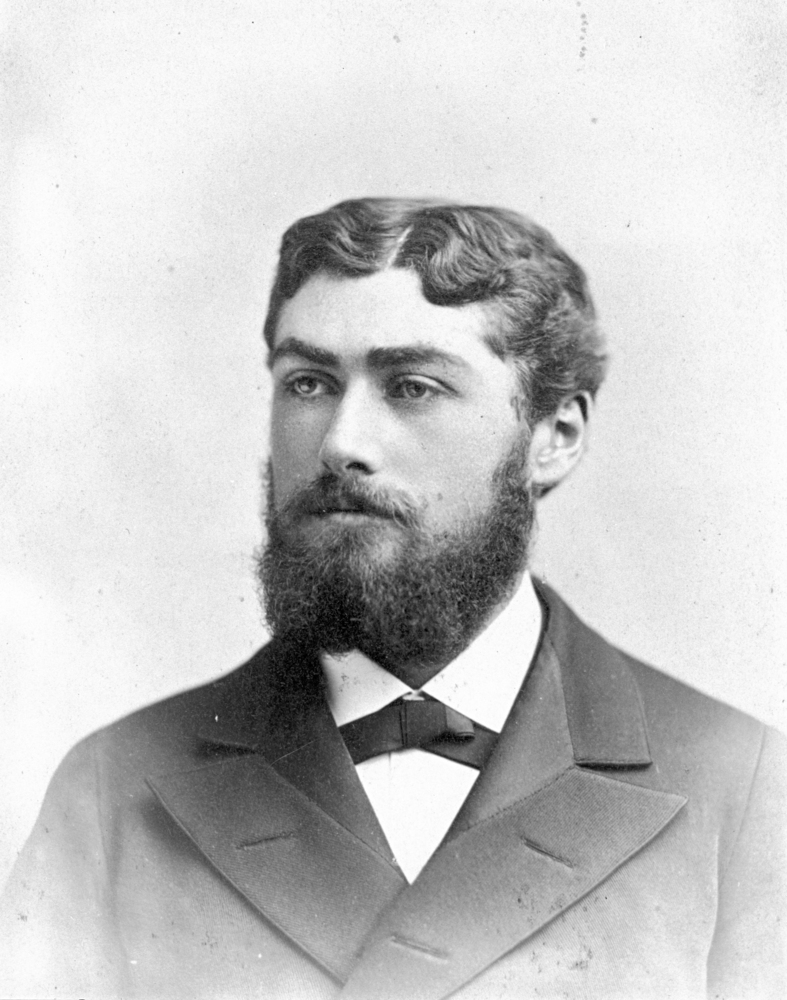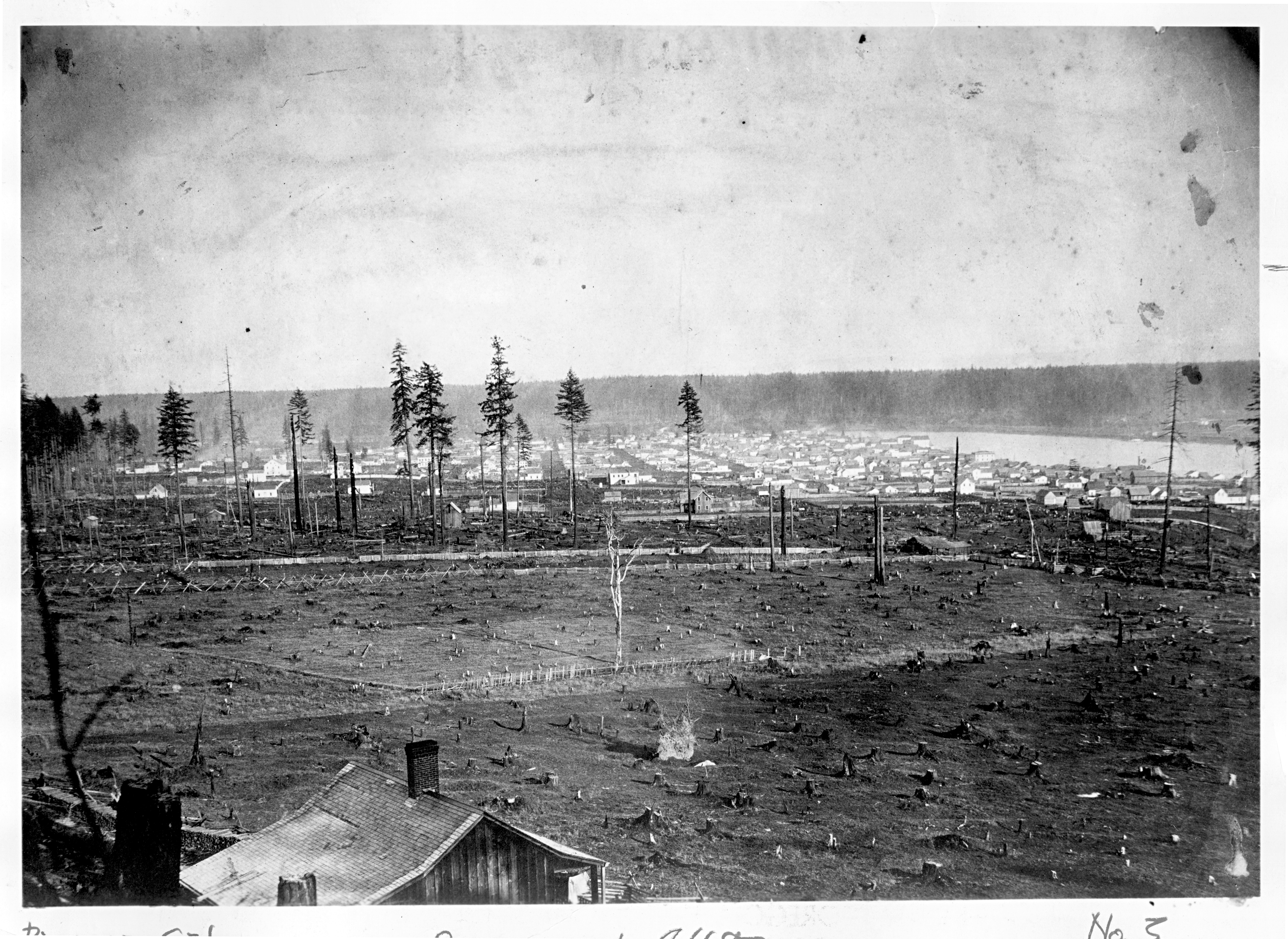Poet and suffragist Sara Bard Field lived in Portland in the early part of the twentieth century. Her poetry, her support of women’s suffrage, and her controversial relationship with Charles Erskine Scott Wood, a Portland cultural icon, made an indelible imprint on the history of Oregon.
Field was born in Cincinnati, Ohio, on September 1, 1882, to strict Baptist parents. The family moved to Detroit, where, at the age of eighteen, she married the much older Baptist minister Albert Erghott. The couple went to Burma as missionaries, an experience that awakened Field’s sense of social justice. Upon their return to the United States, Erghott, a Baptist of Social Christian leanings, took a position with a poor parish in Cleveland, Ohio. Field worked in support of Cleveland’s progressive mayor, Tom Johnson, and her sister Mary, a socialist and supporter of Johnson’s, introduced her to Clarence Darrow and to the ideas of Henry George. During these years, she gave birth to two children, Albert (1901) and Katherine (1906).
Erghott was assigned a parish in Portland in 1910, and over the next ten years, Field involved herself in the suffrage movement. She also met C.E.S. Wood (introduced by Darrow) and they fell in love. Their love affair shocked many Portlanders, but Field was undeterred by conventional moralities. In 1913, she moved to Nevada and secured a divorce, becoming a pioneer in the developing phenomenon of migratory divorce. She also continued to fight for suffrage, and in 1915 she made a 5,000-mile transcontinental automobile journey to carry a petition to President Woodrow Wilson.
In 1918, Field and Wood left Portland, settling first in San Francisco and then in Los Gatos, California. Tragedy struck when Field’s son was killed in a car accident. On a hillside above Los Gatos, Field and Wood built a small villa they called “The Cats,” designed by Walter Steilberg. There they wrote, entertained, and lived a life of “gilded bohemianism.” They counted among their friends Robinson Jeffers, Ansel Adams, John Steinbeck, Langston Hughes, and Lincoln Steffens. Field was close with Jeffer's wife Una.
Field wrote a number of books during the 1920s and 1930s, some of them with major publishing houses and others privately printed with noted fine press printers—the Grabhorn brothers, in particular. Her publications include Barabbas: A Dramatic Narrative, which the Book Club of California judged to be the best book written in 1932 by a Californian, and Darkling Plain, a collection of lyrics published by Random House in 1936.
Prompted by Wood’s failing health and the death of Wood’s first wife, Field and Wood married in 1938. After Wood died in 1944, Field edited his collected poems, which Vanguard Press published in 1949. In 1955, she sold “The Cats” and moved to Berkeley, where she died in 1974.
To some, Sara Bard Field is remembered as a provocative woman, but her significance is best exemplified in her support for women’s rights, social justice, literature, the aesthetic life, and the man she loved.
-
![Sara Bard Field.]()
Field, Sara Bard , CN 021698.
Sara Bard Field. Photo by Johan Hagemeyer, courtesy Oreg. Hist. Soc. Research Lib., CN 021698
-
![Sara Bard Field with C.E.S. Wood, about 1926.]()
Field, Sara Bard, and Wood, C.E.S., ca. 1926, bb002909.
Sara Bard Field with C.E.S. Wood, about 1926. Oreg. Hist. Soc. Research Lib., bb002909
Related Entries
-
![C.E.S. Wood (1852-1944)]()
C.E.S. Wood (1852-1944)
C.E.S. Wood may have been the most influential cultural figure in Portl…
-
![Portland]()
Portland
Portland, with a 2020 population of 652,503 within its city limits and …
Related Historical Records
Map This on the Oregon History WayFinder
The Oregon History Wayfinder is an interactive map that identifies significant places, people, and events in Oregon history.
Further Reading
Bingham, Edwin, and Tim Barnes, eds. Wood Works: The Life and Writings of Charles Erskine Scott Wood. Corvallis: Oregon State University Press, 1997.
Field, Sara Bard. The Pale Woman and other poems. New York: William Edwin Rudge, 1927.
Fry, Amelia. "Sara Bard Field: Poet and Suffragist." Interview conducted by Amelia Fry, 1959-63. Regional Oral History Project. University of California at Berkeley.http://content.cdlib.org/ark:/13030/kt1p3001n1/
Riley, Glenda."Sara Bard Field, Charles Erskine Scott Wood, and the Phenomenon of Migratory Divorce." California History 69.3 (1990): 251-259.







